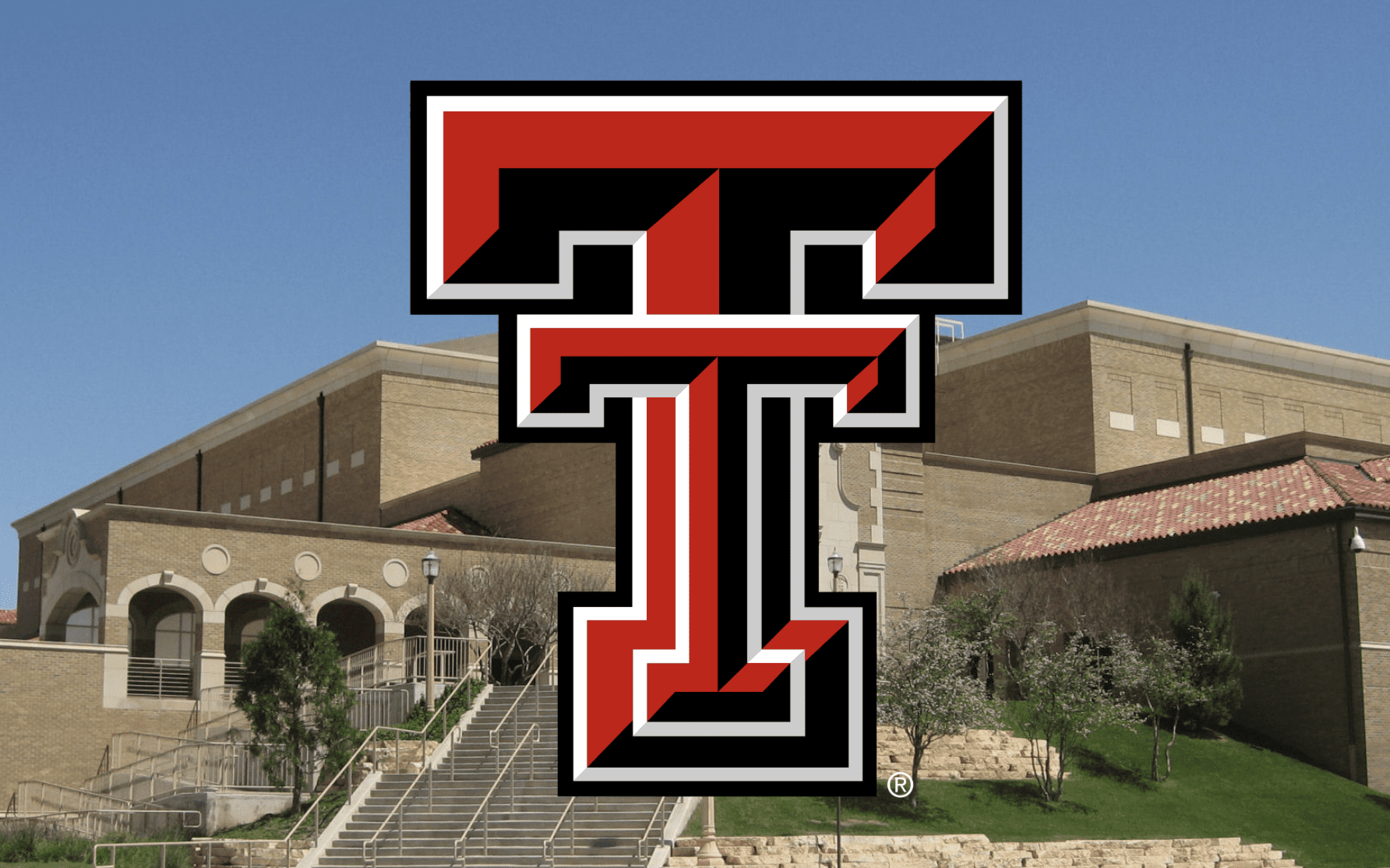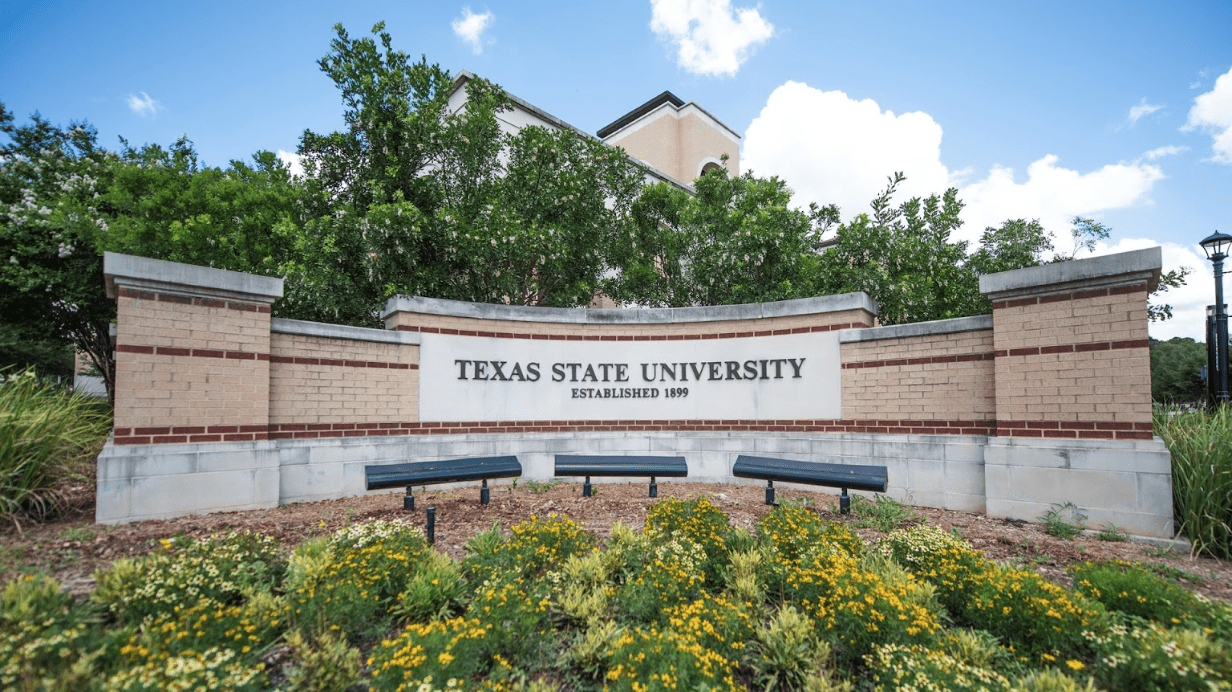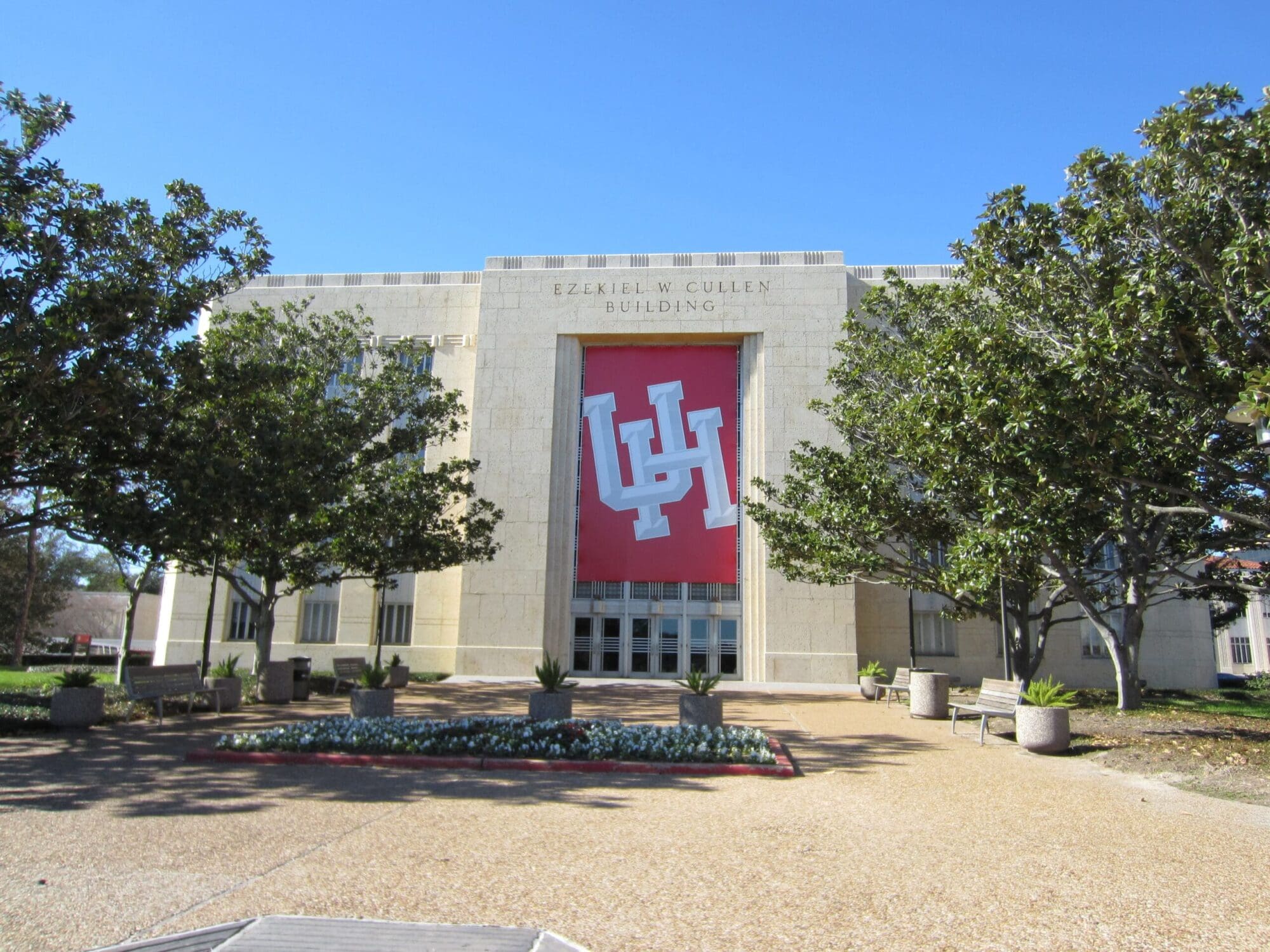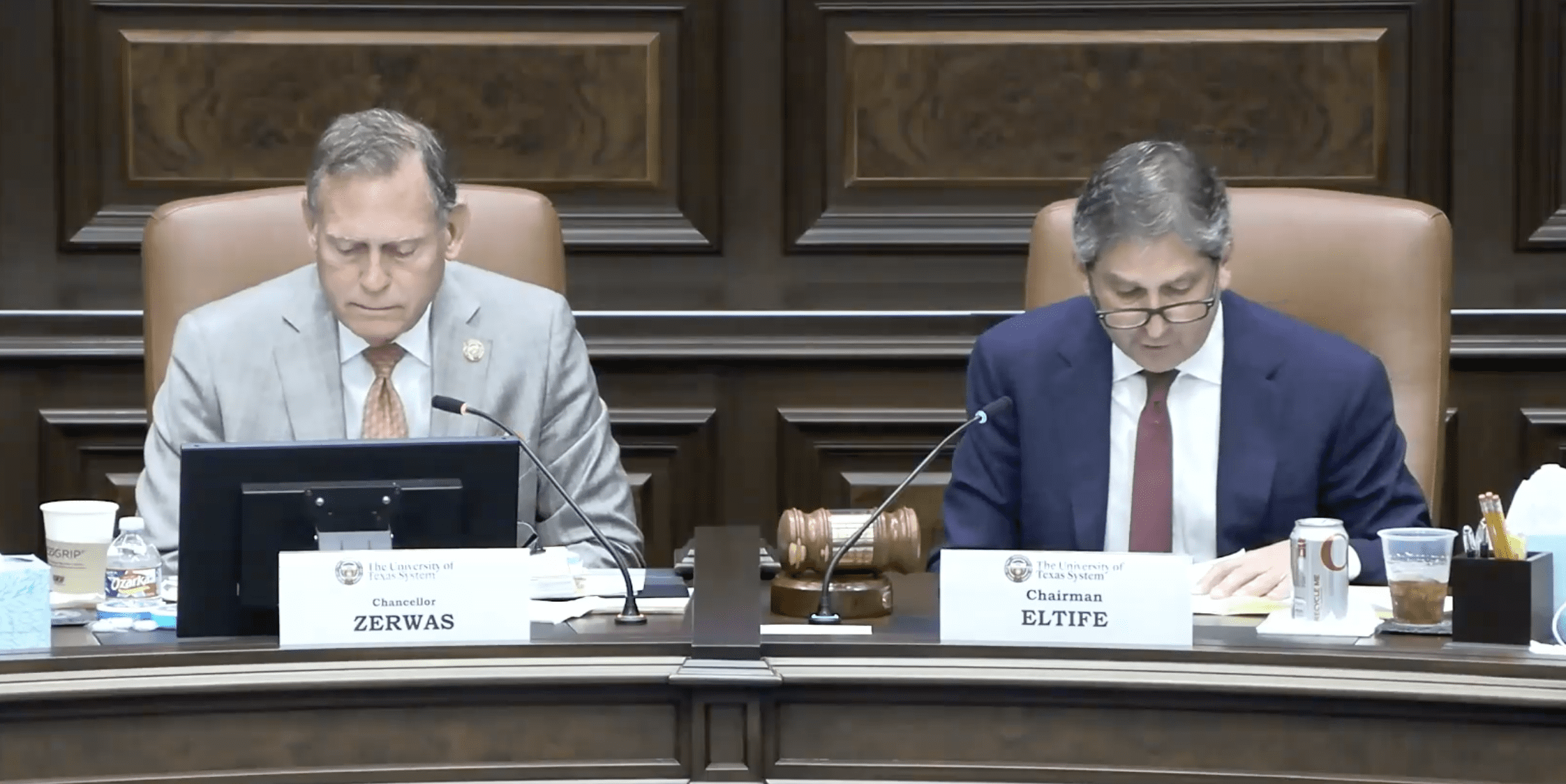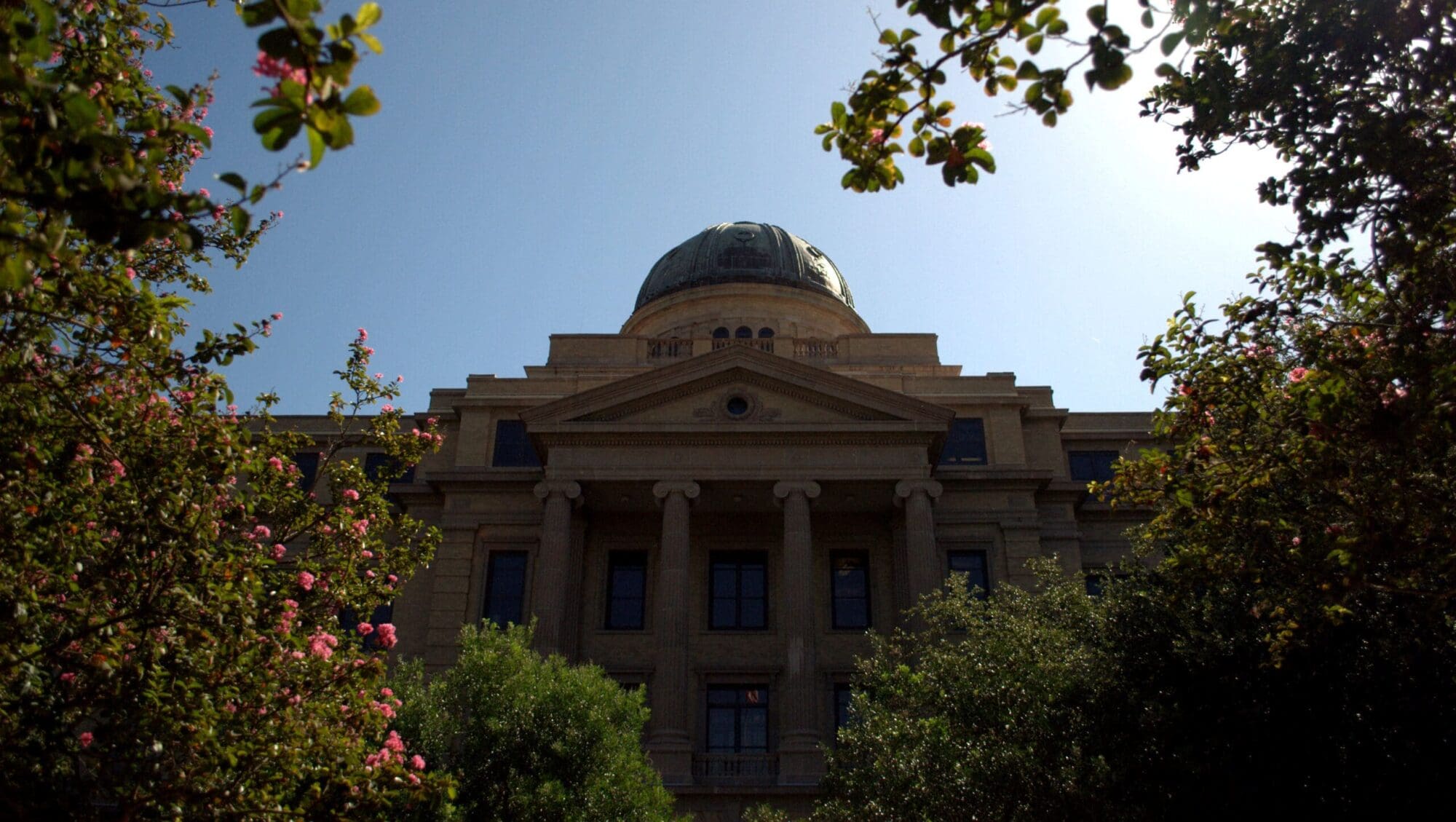An internal Texas Tech University System memo has raised concerns regarding an agreement proposed by the College Sports Commission. If signed, the agreement would violate state law and punish the university, should the Texas attorney general file any lawsuit related to the commission.
System Board Chair Cody Campbell has asked the College Sports Commission to discuss revising the agreement’s rules and regulations.
In his memo to Campbell advising against signing the 35-point agreement, Vice Chancellor and General Counsel Eric Bentley identified 16 areas of concern. Bentley warned that one clause “attempts to penalize the university” if the state attorney general files “any lawsuit related to” the College Sports Commission (CSC) in the course of “protect[ing] state agencies and … citizens.” Potential penalties to the university could include losing conference revenue and post-season eligibility. Bentley called this “unacceptable.”
Bentley flagged another clause that he claimed “could be viewed as prohibiting even our legislature, Attorney General, and other state officials from performing their official duties including lobbying or advocating for change in federal or state law.”
He noted another clause leaves “apparently very little right to appeal” any “final factual findings and determinations” arising from a CSC investigation, and the agreement would have Texas Tech waive a jury trial. He further wrote that one clause states CSC may impose an undetermined amount of “fines, penalties, or other sanctions as appropriate,” which Bentley cautioned would violate state law, because this “would be considered an unknown debt of the state.”
Finally, Bentley warned that even if the CSC failed to give notification beforehand, the agreement would automatically bind universities to “any other policies and procedures that the CSC may from time to time adopt.”
The CSC agreement, dated November 19, was sent to every member of the Big 12 Conference. It was born out of a settlement in House v. NCAA, a class-action lawsuit filed on behalf of the more than 10,000 college athletes who played NCAA Division-I sports between 2016 and 2024. The lawsuit centered around NCAA restrictions on college athletes’ ability to make money from competing.
The CSC gave each Big 12 member until December 3 to sign. Bentley wrote that Texas Tech cannot sign the agreement without approval from the Texas Tech System Board of Regents.
In a social media post sharing Bentley’s November 22 memo, Campbell expressed that while Texas Tech strongly supports the settlement of the House v. NCAA lawsuit, it will not sign the current CSC agreement. He instead wants “a revised set of rules and regulations” that comply with Texas law and Texas Tech bylaws and account for members’ input.
“We invite and encourage a constructive conversation around a revised set of rules and regulations,” he wrote. “We will eagerly and fully engage in conversation aimed at finding a legal and workable solution, and I will personally commit to facilitating such discussions.”
A CSC spokesperson responded to Texas Scorecard:
The University Participant Agreement formalizes each school’s decision to participate in the new system established by the House settlement. Each of these institutions has already proactively chosen to participate in the new system – either by opting in to revenue sharing or agreeing to the House settlement. Signing the participant agreement is a logical next step in building a sustainable enforcement system and will allow the College Sports Commission to effectively deliver on what was agreed to in the settlement.
